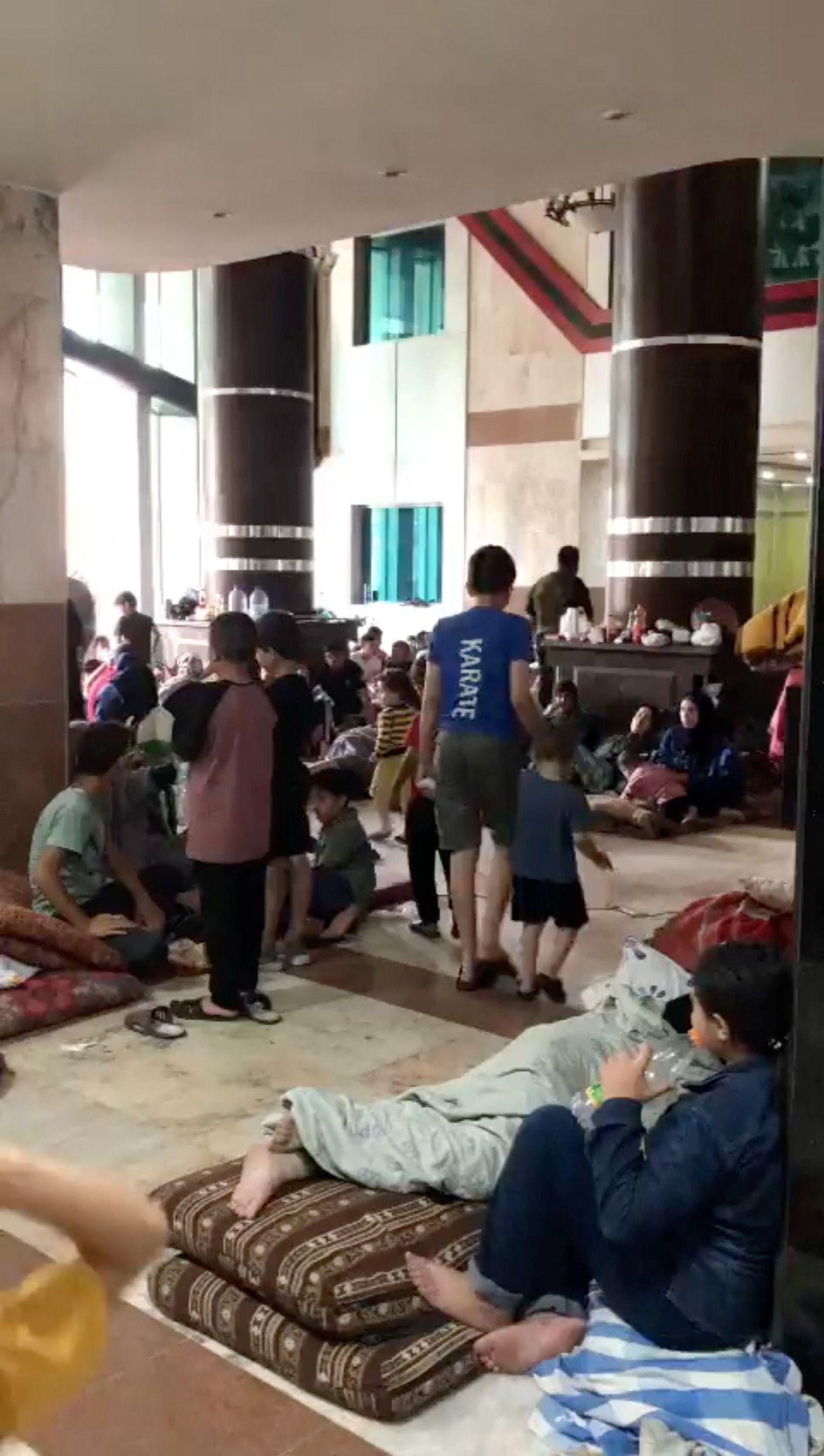Hundreds of patients are still stuck in hospitals in northern Gaza – with at least 400 of them in Jerusalem – and unable to travel south of the Gaza Strip, said the head of the United Nations Agency for Palestine Refugees (UNRWA, in its English acronym). John White.
The warning came after Israel ordered the evacuation of these residents Al-Quds Hospital, in the Tel al-Hawa neighborhood of Gaza City, north of the Gaza Strip, and workers at this center, as well as the Palestinian Red Crescent, reported “Violent attacks and bombings very close to hospitals” since Sunday afternoon.
“There was very heavy shooting around the hospital,” Marwan Jilani, director general of the International Federation of the Red Cross, told BBC News.
He added that a rocket fell “just meters” from the Al-Quds hospital, breaking windows and forcing people sheltering in that part of the building to move to another area.
The Palestinian Red Crescent estimates there is 400 patients in that hospital, many of them are in intensive care.
“Evacuating them means killing them,” they warned.
Director General of the World Health Organization (WHO), Tedros Adhanom Ghebreyesus, said this was “very worrying”.
“We reiterate: it is impossible to evacuate a hospital full of patients without endangering their lives. According to International Humanitarian Law, health services must always be protected”, he wrote on his X account, which used to be called Twitter.
Dr Bashar Murad, hospital director, said that apart from patients, there were at least 12,000 internally displaced people taking refuge in the hospital, 70 percent of whom were children and women.
Long night in northern Gaza
According to the BBC correspondent in Gaza, Rushdi Abualouf, a number of airstrikes hit the area around the Al-Quds hospital throughout Sunday. This damaged most of the nearby buildings and residential towers.
“Everyone, especially the children, was scared,” A doctor at Al-Quds hospital who did not want to be named told the BBC.
“There was heavy shooting near the hospital. “They bombed the (residential) tower behind the hospital,” said this doctor.
The BBC also received a voice message from an unnamed Gaza resident: “They have bombed two residential towers and now they are bombing the third tower. God, protect us.”
“Some of the attacks occurred about 10 meters from the hospital’s exterior doors and affected parts of the building where thousands of civilians had sought shelter.Abalouf said.
Shops in the area were also destroyed, as was the entire road leading to the hospital.
He also reported that the medical team distributed masks to help the public protect themselves from the large amount of dust and smoke entering the Al-Quds hospital.

Fear at another hospital
There are also Concern for patients and staff at another Gaza City hospital, Al Shifawhere the chief of surgery described the situation as “catastrophic.”
Al Shifa Hospital is the largest in Gaza and is located in the heart of the city.
He The Israeli military calls Hamas the main base of operations It is located under the location of Al Shifa Hospital.
Hamas rejected the claims and several doctors working there called for the hospital to be protected.
On Sunday, the Associated Press reported that Israeli warplanes had carried out overnight strikes near the hospital, citing residents of Gaza City.
On Saturday, people in the area told the BBC’s Gaza correspondent, Rushdi Abualouf, that nearby roads had been attacked.
Some 55,000 internally displaced people now “occupy every square meter” of Gaza City’s medical center, said Dr. Marwan Abu Saada in a voice message to the BBC, recorded on Sunday afternoon.
Abu Saada said that hospitals are “overcrowded” and patients are “invading” the hospital hallways as more and more patients arrive.
Although around 100 patients were transferred from the center over the weekend, he explained that the number was not enough. The amount of income is greater than what can be paid out.
“We receive a lot of cases. Every half hour we receive many injured.”
This situation is compounded by the lack of all types of medical supplies, from anesthetics to analgesics or antibiotics.
“This makes the situation very difficult. “We can’t do more,” he added.
Change in Israeli strategy
“Since yesterday (Sunday 29th), it seems there have been fewer air strikes in southern Gaza than before. So It appears that Israel wants to focus its operations in the north and in Gaza Citywhere they now have tanks from four different directions,” explained Abualouf.
This Monday, the sighting of Israeli tanks was reported on the main road leading from north to south of the region, near Gaza City and the road used by thousands of people to flee from the north. This is the deepest area Israeli forces have seen since the start of the operation.
“This is a clear sign that Israeli surveillance around Gaza City is starting to get tighter,” said Paul Adams, the BBC’s diplomatic correspondent in Jerusalem, before he reported the tank sighting.
“It is clear that, as Israeli forces gradually intensify their operations, Gaza City will be one of the main focuses of their efforts”, he pointed out.
He pointed out that there are tens of thousands to hundreds of thousands of people in the region who live there out of fear or determination and it appears that Israeli forces are trying to isolate them completely.

Remember that you can receive notifications from BBC Mundo. Download the new version of our app and activate it so you don’t miss out on our best content.

“Internet trailblazer. Troublemaker. Passionate alcohol lover. Beer advocate. Zombie ninja.”







